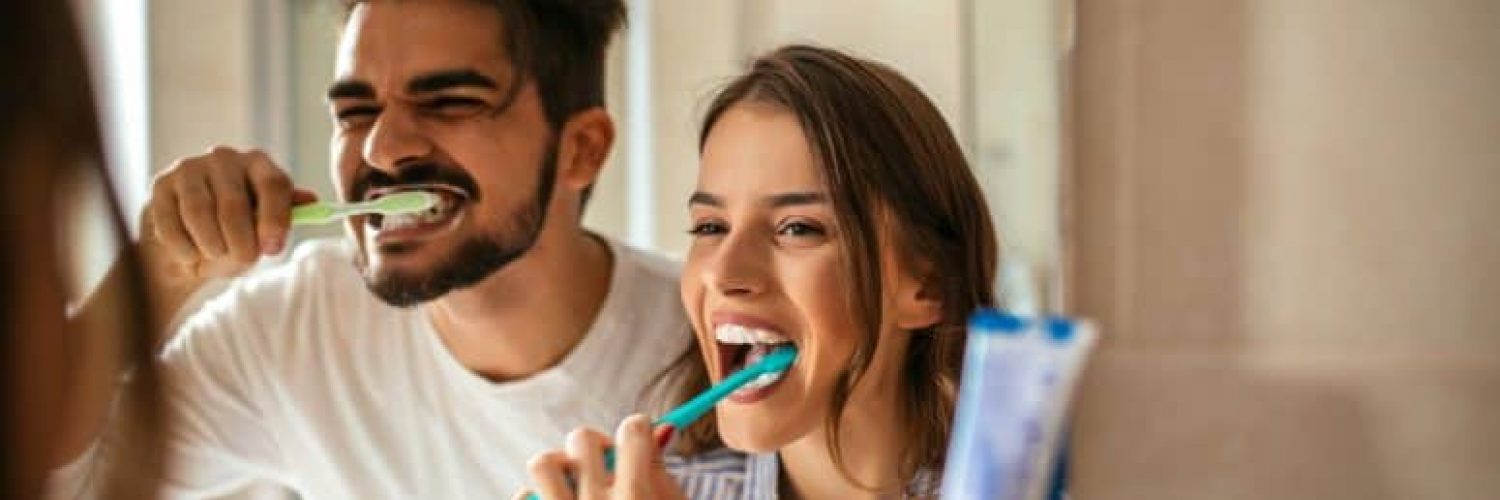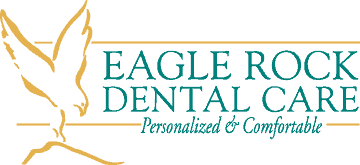Getting someone to brush their teeth definitely seems like one of those common sense things that you really shouldn’t need to do, but the unfortunate reality is that dental hygiene is not high on the priority list for many people. In the midst of busy schedules and years of bad habits formed as a child carry over into adult life. Poor dental hygiene can affect relationships with friends and family, and especially with significant others, including spouses and fiancees.
However, it’s not too late to help someone change those unhealthy habits. Here are some strategies that may help change the conversation around oral health in your house.
Education
Educate your loved ones about their physical appearance. Help them see how this affects the way they are perceived by peers, co-workers, employers, and potential significant others. From sleep trackers to fitness watches, people love tracking their performance. It doesn’t have to be any different in regards to your teeth!
Start out by taking some pictures of the person’s teeth and show them what they look like to the outside world. We often do not see ourselves in the way that others see us, and the new perspective may be eye-opening enough to make brushing their teeth more important to them. Often, people aren’t neglecting their teeth intentionally, they just need a reminder to prioritize proper hygiene. You’ll also have a starting point to track progress over time. Commit to taking new photos every month or even every week to help them see how things are progressing as their dental habits improve.
Here are some numbers that may help fuel the visual evidence. According to the Oral Health Foundation:
- 66 percent of adults have a visible plaque on their teeth
- 74 percent of adults have had at least one tooth extracted
- 29 percent of adults have regular tooth pain
More than likely, no one will want to be included in these statistics. With a few simple behavior changes, your significant other does not have to be, either.
Don’t Tiptoe
No one likes to tell someone else that they have bad breath or unsightly teeth, especially when it’s someone you love. It can be a very sensitive subject and difficult to broach. However, sometimes honesty really is the best medicine, especially when it is someone you care about. Tiptoeing around the issue is not going to incite long-term change, and this change is in their best interest.
Note that being honest is not the same as being mean. You can communicate your thoughts and feelings in a kind, calm, and rational way. If he or she starts to get defensive or angry, remind them that you are just trying to help and change their life (and yours) for the better.
If you do not feel comfortable having a conversation like this in person, write down your thoughts and then make time to for a discussion about them. Being open with your feelings may also get to the root of why he or she does not take care of his teeth.
And, remember that these changes will take time. You will likely need to have some version of the conversation multiple times as you work through the behavior change. Continue to provide positive reinforcement when they do brush their teeth and gently remind them when they do not.
You might need backup, and that’s okay! If they won’t listen to you, no matter how eloquent your thoughts or how much information you provide, it might be time to consult a dentist. A dentist can offer an objective and professional opinion that may resonate better than what you or other friends and family members say.
Why Should I Brush My Teeth?
Why do we brush our teeth? Simple answer: to prevent cavities. We need to remove plaque, the transparent layer of bacteria that coats the teeth. We have heard it over and over again: the best way to do this is by brushing our teeth twice a day and flossing at least once a day. Brushing also stimulates the gums, which helps to keep them healthy and prevent gum disease.
Why is this important? Besides complicating your social life, neglecting to brush your teeth can land you with more than just a couple cavities. It could actually stop your heart. Gum disease has been linked to an increased prevalence of numerous other conditions such heart disease, stroke, diabetes, and bronchitis. But how? Because your mouth is full of bacteria, if you have poor dental hygiene those bacteria can potentially make their way into your bloodstream and thus infect distant parts of your body.
Okay, then HOW should I brush my teeth?
How much attention do you dedicate to learning about your mouth and the needs of your oral health? In the rush of our daily routines, it’s so easy to neglect our teeth and gums. How often, when you are running late, do you usually skip brushing your teeth – of course, teling yourself “I will get to it later”. On these rare occasions, I might even bring my toothbrush and toothpaste with me, convincing myself I will brush at the office or after lunch. To be honest, it very rarely ever happens. I am much more likely to grab a piece of gum to freshen my breath and (hopefully) whiten my teeth temporarily.
With the dangers presented above, it is so important to make “conscious brushing” a part of our daily routine, twice a day. What do I mean by “conscious brushing”? I mean being aware of the plaque you are cleaning off of your teeth and be aware of how you are stimulating and massaging your gums.
Rule of tongue: Brush until teeth feel clean (which may take more than 2 minutes).
All humans have this amazing sensor built into our bodies. It’s called: the tongue.
How many times have you experienced your tongue feeling something on your teeth or stuck between two teeth and your attention is laser focused on removing that goober until the job is done?
Our tongues are really, really good at feeling the plaque on our teeth.
But, be careful. If you allow yourself to brush unconsciously for 10 minutes, you will scrub your gums too hard and they will scream at you tomorrow for your lack of awareness while brushing. So, the rule here is to stay conscious while brushing for longer periods of time.
Here are some benefits to consciously brushing you teeth according to the rule of tongue:
- Your teeth will undoubtedly be cleaner than they have been in a long time.
- You will give your teeth the ultimate remineralization treatment while ‘stewarding’ your oral biome.
So, the next time you brush, keep in mind the several reasons why we brush our teeth to help you gain maximum benefit of this habit most of our culture does unconsciously.
Make an appointment and go with them to visit the dentist. Our team at Eagle Rock Dental Care has heard it all when it comes to people who do not take care of their teeth, so we’re ready for whatever your significant other might have up their sleeve.

